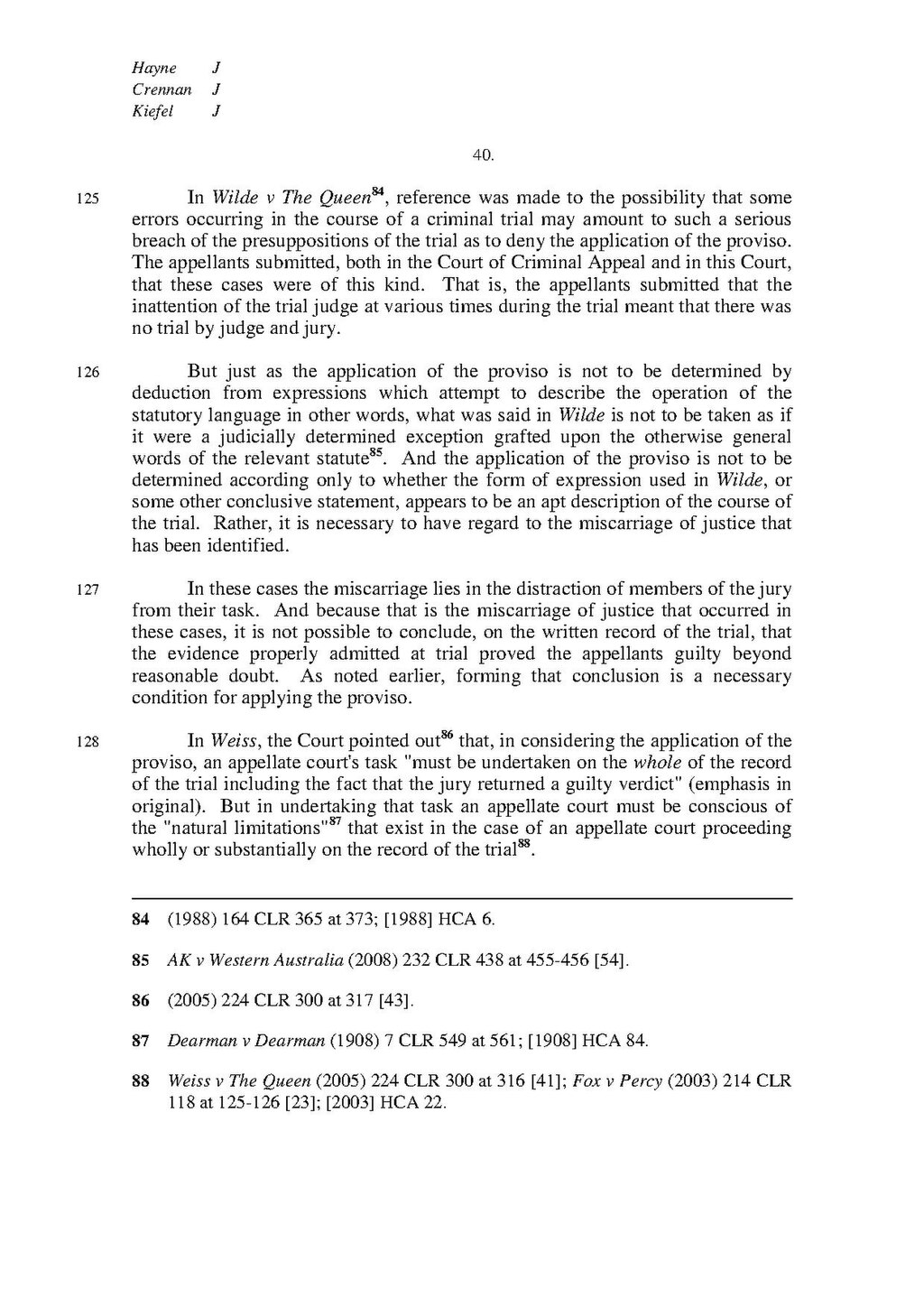Hayne J
Crennan J
Kiefel J
40.
In Wilde v The Queen[1], reference was made to the possibility that some errors occurring in the course of a criminal trial may amount to such a serious breach of the presuppositions of the trial as to deny the application of the proviso. The appellants submitted, both in the Court of Criminal Appeal and in this Court, that these cases were of this kind. That is, the appellants submitted that the inattention of the trial judge at various times during the trial meant that there was no trial by judge and jury.
But just as the application of the proviso is not to be determined by deduction from expressions which attempt to describe the operation of the statutory language in other words, what was said in Wilde is not to be taken as if it were a judicially determined exception grafted upon the otherwise general words of the relevant statute[2]. And the application of the proviso is not to be determined according only to whether the form of expression used in Wilde, or some other conclusive statement, appears to be an apt description of the course of the trial. Rather, it is necessary to have regard to the miscarriage of justice that has been identified.
In these cases the miscarriage lies in the distraction of members of the jury from their task. And because that is the miscarriage of justice that occurred in these cases, it is not possible to conclude, on the written record of the trial, that the evidence properly admitted at trial proved the appellants guilty beyond reasonable doubt. As noted earlier, forming that conclusion is a necessary condition for applying the proviso.
In Weiss, the Court pointed out[3] that, in considering the application of the proviso, an appellate court's task "must be undertaken on the whole of the record of the trial including the fact that the jury returned a guilty verdict" (emphasis in original). But in undertaking that task an appellate court must be conscious of the "natural limitations"[4] that exist in the case of an appellate court proceeding wholly or substantially on the record of the trial[5].
- ↑ (1988) 164 CLR 365 at 373; [1988] HCA 6.
- ↑ AK v Western Australia (2008) 232 CLR 438 at 455–456 [54].
- ↑ (2005) 224 CLR 300 at 317 [43].
- ↑ Dearman v Dearman (1908) 7 CLR 549 at 561; [1908] HCA 84.
- ↑ Weiss v The Queen (2005) 224 CLR 300 at 316 [41]; Fox v Percy (2003) 214 CLR 118 at 125–126 [23]; [2003] HCA 22.
